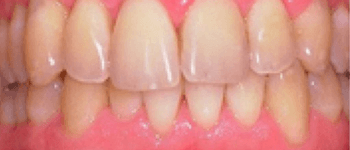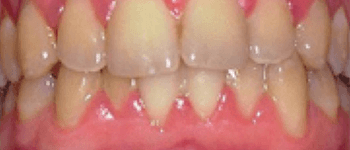Maintaining regular dental cleanings is the key to good oral health. Aside from daily brushing and flossing of your teeth, receiving regular dental cleanings from your dentist is essential to a healthy smile. Skipping out on receiving regular dental cleanings may lead to dental problems. Without maintaining periodic dental cleanings, your chances of developing gum disease increase. This can cause you to have bleeding gums, bad breath, and sensitive teeth. In its more advanced stages, gum disease causes tooth mobility and eventually leads to tooth loss. So if you're overdue a dental cleaning, schedule one immediately. There's no way of telling how much damage is done to your teeth and gums as you postpone your cleaning. The sooner you see a dentist and clean your teeth, the better your prognosis.
What happens if you fail to receive regular dental cleanings?
Failing to maintain regular dental cleanings causes the build up of plaque and tartar on your teeth surfaces. Plaque is a sticky material that consists of food particles and bacteria. Tartar, or calculus, is plaque that has calcified because it wasn't removed from your teeth on time. Failing to remove plaque and tartar from your teeth gradually leads to gum disease. Gum disease eats away at the supporting bone structure and gum tissue. It causes bleeding gums, loosens your teeth, gives you bad breath, and could even cause tooth sensitivity. Unfortunately, you can't remove tartar by yourself. It's impossible to remove this hardened material using over-the-counter cleaning devices such as a toothbrush or dental floss. Only a professional dental cleaning from your dentist or hygienist will properly remove tartar buildup and get your teeth and gums back to a healthy, happy state.
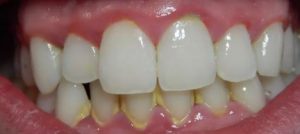
You can not remove calcified tartar with a toothbrush or dental floss by yourself
What is gum disease?
Gum disease is an infection that affects the gum tissue and possibly the supporting jaw structure. Gum disease is a very common disease among the adult population. It affects nearly half of the population over the age of thirty. The risk of gum disease increases significantly with age. Over 2/3 of the population over 65 suffer from varying stages of gum disease. You should not take gum disease lightly. Gum disease is a serious oral condition that leads to tooth loss. Sadly, many patients with advanced gum disease go on to lose most or all of their teeth. The sooner you treat your gum disease, the better the prognosis. Call your dentist to have your gums examined and cleaned before your gum disease gets out of hand!
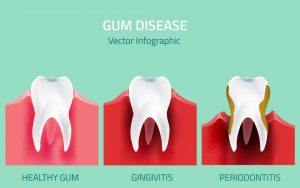
Gum disease is divided into two stages: gingivitis and periodontitis
Gingivitis
Gingivitis is the first stage of gum disease. Gingivitis is highlighted by changes in texture and color of your gums. It causes your gums to become red, swollen, and puffy. Occasionally, you will notice pus pockets in between your teeth. Your gums will feel tender and your teeth start to become sensitive. Typically, you will experience frequent gum bleeding episodes, especially when brushing or flossing your teeth.
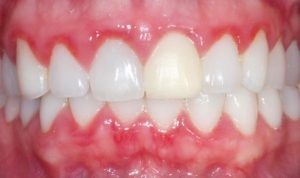
Gingivitis causes red, puffy gums with recurring episodes of bleeding gums
Periodontitis
Periodontitis, or pyorrhea, is the more advanced stage of gum disease involving the jawbone. If you don't treat gingivitis, it eventually progresses to periodontitis. Periodontitis occurs when the bacteria spread from your gum tissue to the jawbone. Highlights of periodontitis include bone loss around the teeth, pus pockets, and tooth mobility. Treatment for periodontitis is much more complicated than gingivitis and may involve surgery. Often times there is no treatment other than extracting the badly damaged teeth.
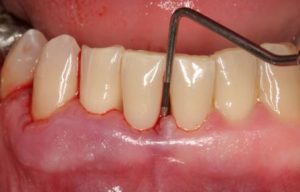
Periodontitis occurs when the infection spreads from your gum tissue to the jawbone
What are the risks of untreated gum disease?
Treatment of gum disease depends on how far along the disease has progressed. Fortunately, gingivitis is relatively easy to treat. This is because the bacterial damage is restricted to the gum tissue. Typically, a good dental cleaning is all that is needed to eliminate the offending bacteria and return your gums to their healthy state. Additionally, gingivitis is fully reversible. This means that there are no long-term effects if you treat your gingivitis in a timely fashion.
Now let's get to periodontitis. Unfortunately, periodontitis is a much more serious oral condition. The damage sustained from periodontitis is typically not reversible. Once you lose your supporting jawbone, it's impossible to replace it. Losing the supporting jawbone causes your teeth to become loose and mobile. Eventually, the teeth become so loose that they will fall out of your mouth. Periodontitis destroys the jawbone and causes tooth loss by the dozens. In fact, periodontitis is the number cause of tooth loss among the adult population.
How frequently do you need a dental cleaning from your dentist?
Most people need a dental cleaning anywhere from once a year up to three or four times per year. The average person with good oral health requires one dental cleaning every six months. If you have impeccable oral hygiene, and never had a cavity or gum disease, you may need just one dental cleaning each year. On the other hand, those with advanced gum disease require a dental cleaning every three to four months. Only you and your dentist can determine how many dental cleanings you need each year. There are many factors that impact your oral health and determine how frequently you require dental cleanings. Here are some of the main criteria that determine how frequently you need a dental cleaning:
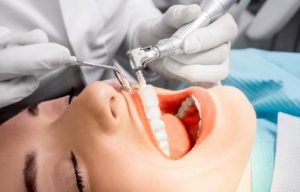
Your oral hygiene, diet, and medical background determine how frequently you need a dental cleaning
Oral Hygiene
It goes without saying that if you brush and floss your teeth well, you don't need dental cleanings as frequently. Be aware that flossing your teeth is just as important as brushing them. In fact, flossing your teeth becomes more and more important as you age. If you don't brush and floss frequently, or as well as you should, then you should see your dentist more often for teeth cleanings.
Diet
The healthier your diet, the less frequently you need your teeth cleaned. If you're on a healthy diet that is low in processed sugars, then you can wait a bit longer. On the other hand, if you eat lots of candies, sodas, and sweets, then you should see your dentist more frequently as well.
Crowded Teeth
People who have crowded teeth are much more likely to develop gum disease. If you have teeth crowding, it's best to see an orthodontist to straighten your smile. Otherwise, you should get a dental cleaning every three to four months to keep your pearly whites clean and healthy.
Medical Issues & Medications
Medical conditions such as diabetes, Sjogren's syndrome, heart conditions, digestive issues, etc. can impact your oral health. Additionally, plenty of medications have an impact on your oral health as well. There are countless medicines that contribute to dry mouth which necessitates more frequent dental cleanings. The longer the list of your daily medications, the more likely you are to suffer from dry mouth. This also means that you should be seeing your dentist 3 to 4 times a year, instead of 1 to 2 times, for a dental cleaning.
Age
There are many seniors with impeccable oral health. However, aging does make it harder to maintain adequate oral hygiene for many reasons. As we develop more medical problems, take more medications, and develop more bad habits, our oral health becomes compromised. Medical conditions such as arthritis, glaucoma, cancer, etc. can all affect your ability to maintain proper oral hygiene. Furthermore, the more existing dental restorations in your mouth, the more difficult it becomes to maintain your oral health. As a result, most seniors are encouraged to get more frequent dental cleanings to make up for these riskl factors.
